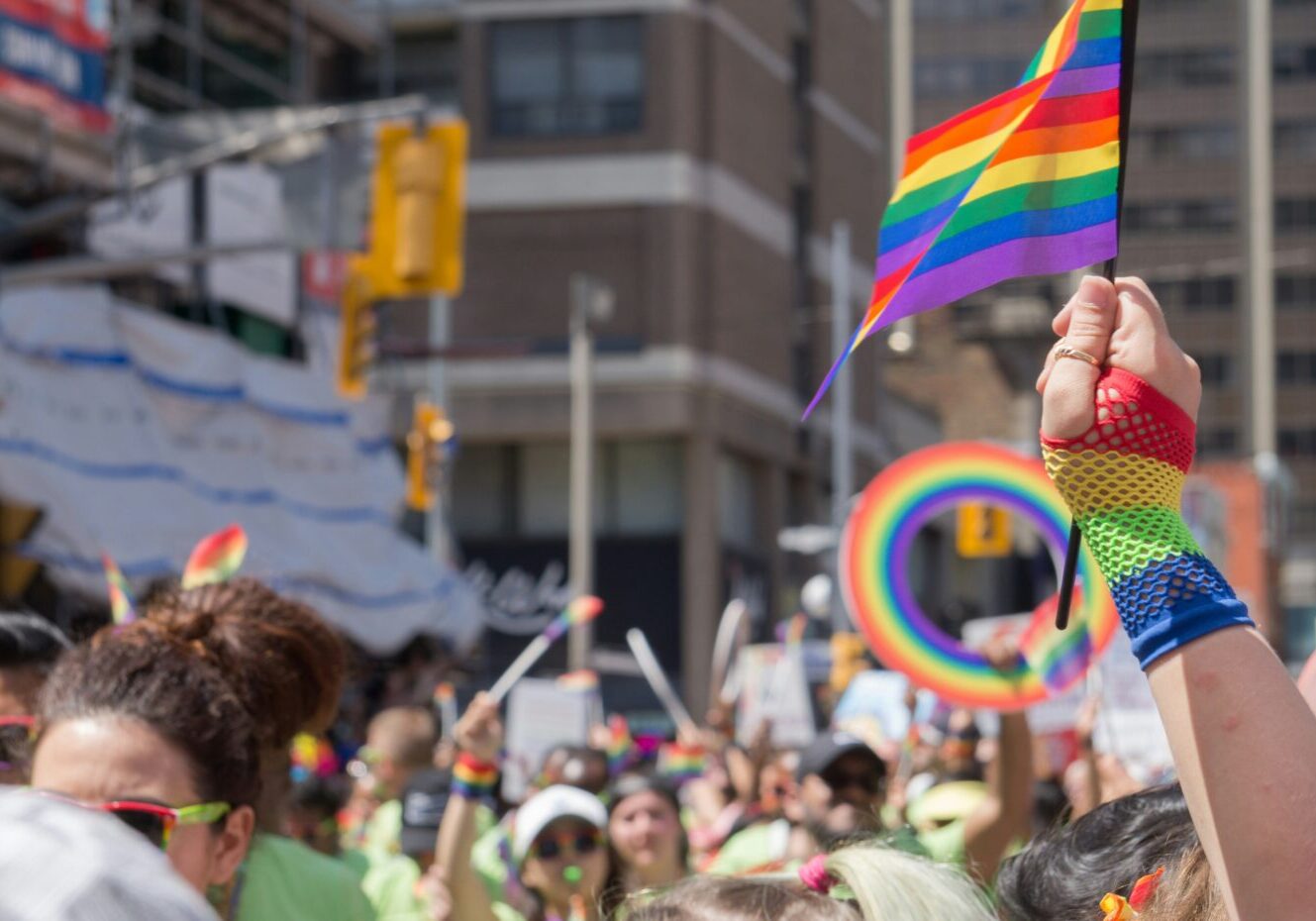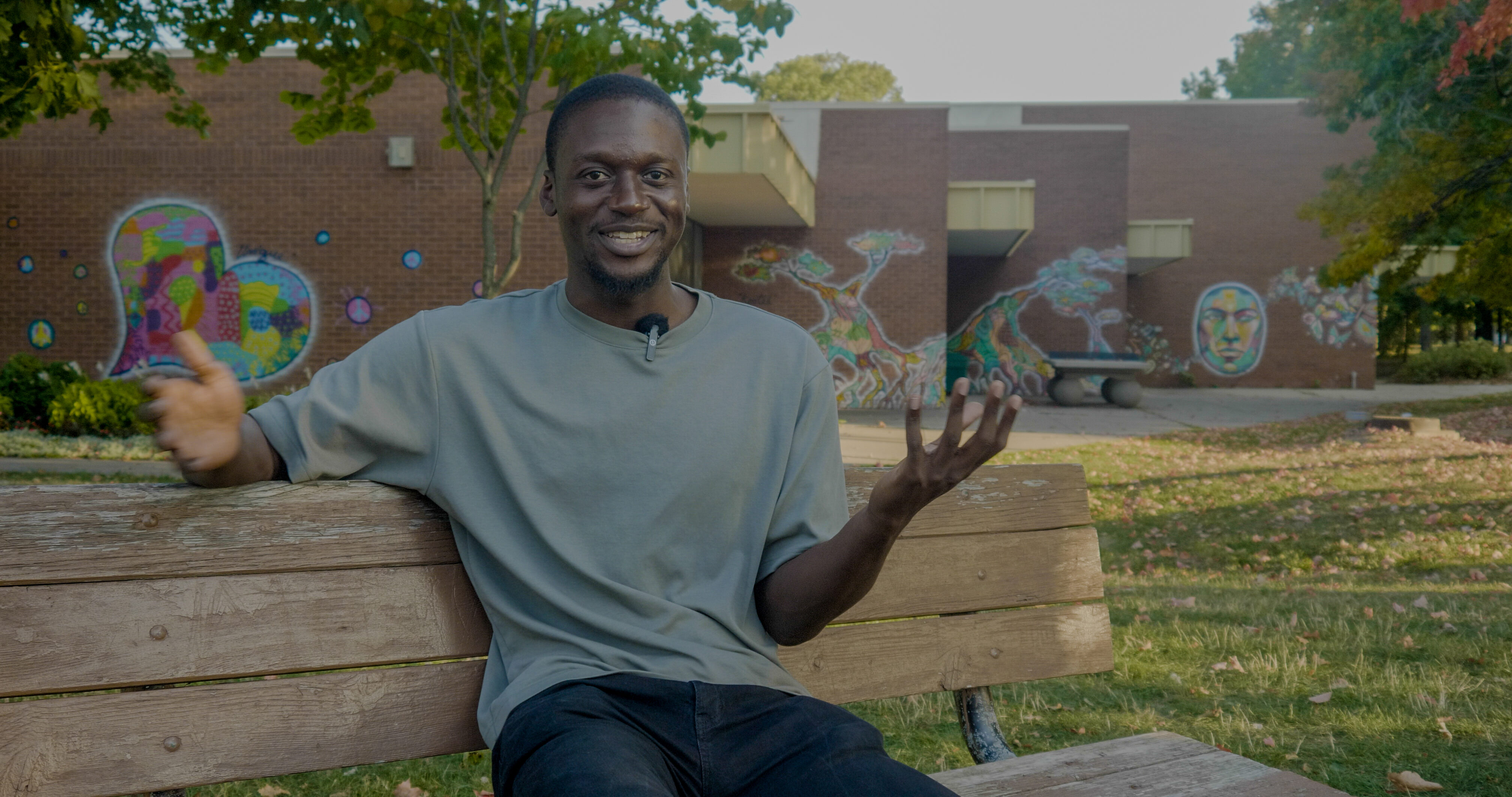THE GREEN LINE
DOCUMENTERS NOTES
Trans and non-binary youth are getting support from the city — but what about older folks?
Toronto’s 2SLGBTQ+ Advisory Committee discussed the city’s new Access Plan, but some community members raised concerns about support for seniors, refugees and people beyond the downtown core.

The 2SLGBTQ+ Advisory Committee met in Committee Room 2 at City Hall on Oct. 15, 2024.


KAREN CHAN
Chinatown-based artist, graduate of University of British Columbia and bunny mom. Interested in storytelling to build community.
October 16, 2024
These city meeting notes are part of Documenters Canada. Learn more about our program here.
Toronto’s 2SLGBTQ+ Advisory Committee reviewed a new "Access Plan" aimed at improving services for trans and non-binary youth, but some community members highlighted the need for more support for older adults, refugees and Torontonians outside downtown.
The atmosphere of the meeting, which took place on Oct. 15, was calm and inclusive. Roughly 30 people attended, including many online. Five attendees spoke and shared ideas or stories about their experiences as 2SLGBTQ+ community members in Toronto.
The following people were in attendance:
- Chris Moise, Councillor, Toronto Centre, Chair
- Mark Toffoli, Vice-Chair
- Paul Ainslie, Councillor, Ward 24, Scarborough-Guildwood
- Angela Fung (she/her), Associate Director, Toronto Public Health
- Sana Imran (she/her), Associate Director, Toronto Public Health
- Denise Andrea Campbell (she/her), Executive Director, City of Toronto Social Development
- Cooper Andre, Executive Director at Equitable Action for Change, member of 2SLGBTQ+ Advisory Committee
- Pink Angel, member of 2SLGBTQ+ Advisory Committee
- Apt'sqi'gnn, L'nu community member in Qapskuk, Ktaqmkuk, Mi'kma'ki, member of 2SLGBTQ+ Advisory Committee
- Micah Chu (he/they), queer artist and facilitator with Story Planet, member of 2SLGBTQ+ Advisory Committee
- Jad Jaber, founder of Marginalized Majority, member of 2SLGBTQ+ Advisory Committee
- Ranjith Kulatilake, advisory committee member of the Positive Spaces Initiatives at Ontario Council of Agencies Serving Immigrants (OCASI), member of 2SLGBTQ+ Advisory Committee
- Kay Mehrizi (she/her), mental health educator, trauma counselling specialist, policy advisor, and DEIA consultant, member of 2SLGBTQ+ Advisory Committee
- Lauren Pragg, Interim Executive Director at LGBT YouthLine, member of 2SLGBTQ+ Advisory Committee
- Bamboo Ren, Supervisor of Research and Evaluation, Skills for Change, member of 2SLGBTQ+ Advisory Committee
- Terrence Rodriguez, Founder of REX Pride, member of 2SLGBTQ+ Advisory Committee
- Talin Wright (xe/xem/xer), member of 2SLGBTQ+ Advisory Committee.
- Maiesha Zarin (they/them), member of 2SLGBTQ+ Advisory Committee
- Scott McKean, Manager, SafeTO
- Kira Katsner (they/them), Policy Development Officer, City of Toronto
SUPPORT PLANS
What did members of the community have to say?
The first presentation was about the implementation of a new "Access Plan for Two-Spirit, Trans and Non-binary Youth.” It includes 56 actions across six outcome areas to be achieved between 2024 and 2027.
- This report aims to “reduce barriers to services and programs for Two-Spirit, trans and non-binary (2STNB) youth aged 12-29.”
- Some key issues include challenges faced by youth, such as gender-based violence, housing stability, mental health and well-being, as well as barriers to programs and services at the city.
- The plan includes 16 priority actions. Among them, the city plans to make policies to remove barriers, focus on staff training, make inclusive washrooms and change rooms, update the shelter standards, prioritize access for housing development opportunities, create leadership opportunities for Two-Spirit, Trans and Non-Binary (2STNB) youth and focus on public safety.
Committee member Pink Angel recommended that seniors and “the missing middle” (people aged 30-65) not be overlooked. Kira Katsner said they hoped the report would improve care for all, but added that there is no initiative for older 2STNB (Two-Spirit, Trans, Non-Binary) folks.
Committee member Terrence Rodriguez, who's also founder of REX Pride and a social worker at Rexdale Community Health Centre, voiced a concern that services might be centralized in the downtown core. He recommended building capacity through community health centres to improve access points to care. He also recommended support for culturally appropriate activities, such as sacred fires and other Indigenous traditions.
Committee member Ranjith Kulatilake, who's also an advisory committee member of the Positive Spaces Initiative at Ontario Council or Agencies Serving Immigrants, expressed concerns for folks outside the plan’s 12 to 29 age range, especially new 2SLGBTQ+ refugees. He also voiced concerns about access to healthcare when refugees land since they must wait to obtain an ID first.
Committee member and queer artist Micah Chu stressed the importance of preventative actions instead of responding to issues. Chu said it's important to research how youth access care overall.
Committee member Lauren Pragg, who's also interim executive director at LGBT YouthLine, emphasized the importance of keeping an eye on intersectionality; for example, she said, an individual may be gay, disabled and a new immigrant. All these determinants interact and should be studied together.
The second presentation by Angela Fong and Sana Imran, both associate directors at Toronto Public Health," was about 2SLGBTQ+ initiatives at Toronto Public Health. The purposes of the project are to:
- Build trust, reduce stigma and foster inclusivity.
- Promote overall health and well-being, not just sexual health.
- Emphasize a desire to create a stronger relationship between Toronto Public Health and the 2SLGBTQ+ community.
- Create a more informed workplace through gender and diversity training
- Spotlight ways for people outside the 2SLGBTQ+ community to show their support.
- Bring attention to health inequities.
Pride Toronto described its past interactions with Toronto Public Health as “transactional," “one and done” and inconsistent at times.” Imran and Fong said Toronto Public Health hopes to “build stronger and more meaningful relationships and increase trust with 2SLGBTQ+ community partners and those with lived experience.” The report also recommended mandatory gender and sexual diversity training among its staff.
Mohamed Shuriye, director of community safety and well-being, and Scott McKean, associate director of violence prevention and SafeTO, presented "SafeTO: Toronto's Ten-Year Community Safety and Well-Being Plan."
- This report includes 26 actions to reduce vulnerability and violence, advance truth and reconciliation, promote justice and healing, and invest in people and neighbourhoods.
- Some key focuses in the report include using a collaborative effort to prevent violence. One initiative is to embed Toronto Community Crisis Service as a first response (a non-police response) to a mental health crisis experienced by 2SLGBTQ+ folks.
What were the outcomes of the discussion?
- The committee received the meeting processes and simplified procedures for information.
- The committee received the "Access Plan for Two-Spirit, Trans and Non-Binary Youth" for information.
- A proposed work plan to request the director of equity and human rights, people and equity to develop a list of three priority issues based on the committee's discussion, and report back to the next meeting on Jan. 23, 2025, was approved.
What's our Documenter's perspective?
As someone who has experience working as a mental health crisis nurse and has had personal interactions with an Indigenous crisis team in Chinatown, one interesting initiative I've seen is a mobile mental health crisis team staffed by the 2-Spirited People of the 1st Nations. Much like the Toronto Community Crisis Service, this team (instead of police) can respond to mental health crises for everyone, including 2SLGBTQ+ folks. I have personally seen them work in our community instead of, or alongside the police, using traditional approaches such as smudging or talking circles. Shelter staff and the police seemed to really appreciate using these approaches, which acknowledge identity to build agency.
Fact-Check Yourself
Sources and
further reading
Don't take our word for it —
check our sources for yourself.
City of Toronto
Care about our city, but don't know how to make it better? Sign up for simple, step-by-step guides to solving problems in your neighbourhood — one small action at a time.
